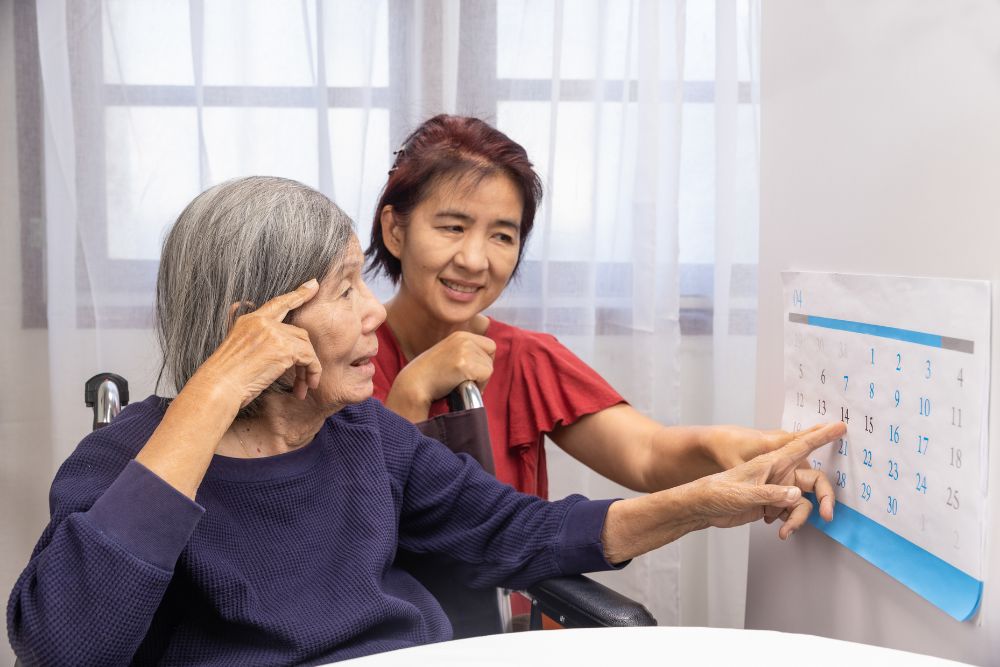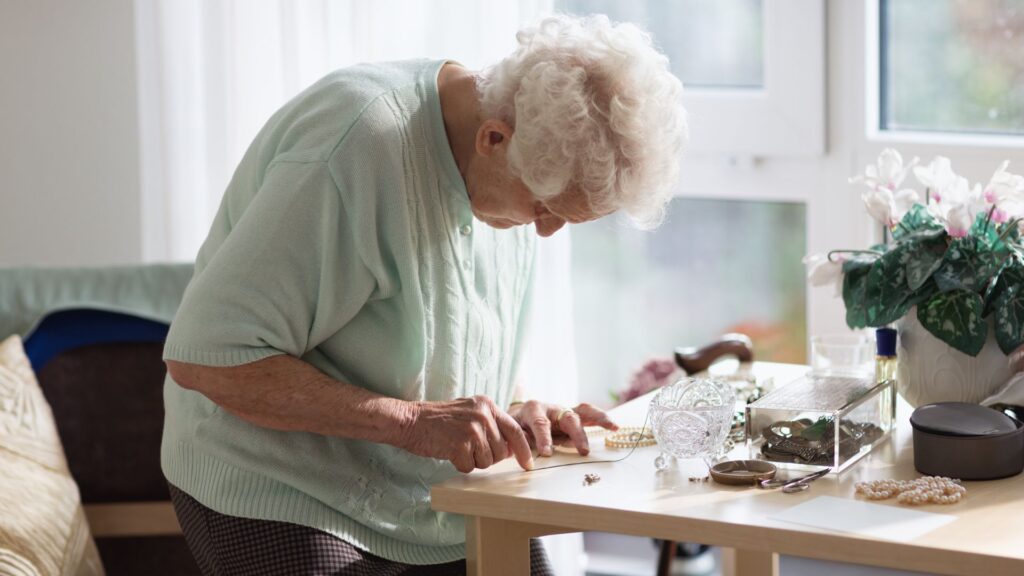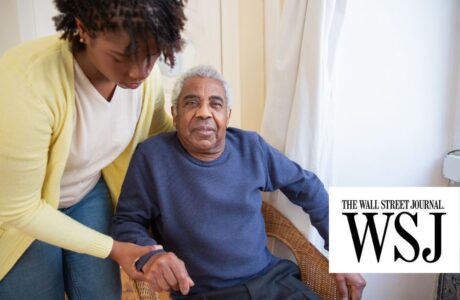
7 Steps to Reduce Hospital Readmissions for Alzheimer’s Patients with In-Home Care
For families caring for someone with Alzheimer’s, a hospital stay is never just a single event — it’s the beginning of a critical recovery window. In fact, the weeks immediately after discharge are often when patients are at the highest risk of being readmitted. For those living with Alzheimer’s, that risk can be even greater due to challenges with memory, communication, and daily function. The good news? With proactive planning, in-home support, and a few key strategies, many hospital readmissions can be prevented.
Why Hospital Readmissions Are a Serious Concern
Hospital readmissions aren’t just inconvenient — they can be harmful. Each return to the hospital exposes patients to infection risks, disrupts routines, and can lead to further cognitive decline for someone with Alzheimer’s. According to healthcare studies, a significant percentage of older adults are readmitted within 30 days, often for preventable reasons such as medication errors, missed follow-up appointments, or falls at home.
Understanding why Alzheimer’s patients are more vulnerable is the first step to preventing another hospital stay.
Why Alzheimer’s Patients Face Higher Risks
Cognitive decline makes it harder for patients to remember care instructions, take medications correctly, or recognize early warning signs of complications. Disorientation from hospital environments can also lead to increased confusion once back home, raising the risk of falls or unsafe behaviors.
For families, these factors can feel overwhelming — especially when you’ve just been through the stress of a hospital admission.
That’s why creating a plan before your loved one comes home is essential to reducing avoidable readmissions.

Step 1: Plan Before Discharge
Discharge day can feel rushed, but it’s your best opportunity to set your loved one up for success at home.
Ask the hospital team for:
- A clear list of medications, including dosage times and any new prescriptions.
- Written care instructions in plain language.
- Warning signs to watch for — and who to call if they appear.
- A follow-up appointment schedule.
- Recommendations for in-home care, therapy, or support services.
If possible, request a meeting with the discharge nurse, physician, or social worker before leaving the hospital.
Once you have the information, the next priority is making sure your home is safe and ready for recovery.
Step 2: Create a Safe Home Environment
Even familiar surroundings can pose hazards after a hospital stay, especially for someone with Alzheimer’s who may be weaker, more confused, or less mobile.
Safety checklist:
- Remove tripping hazards like loose rugs or clutter.
- Add grab bars in the bathroom and near the bed.
- Ensure good lighting in hallways and stairways.
- Keep commonly used items within easy reach.
- Consider a fall detection device or monitoring system.
Making these changes before your loved one returns home can reduce risks dramatically.
Safety is essential, but daily care routines also play a huge role in preventing setbacks.
Step 3: Manage Medications with Precision
Medication errors are one of the top causes of hospital readmissions in older adults. For Alzheimer’s patients, this risk is amplified by memory loss and confusion.
Strategies for success:
- Use a pill organizer with clearly labeled compartments.
- Set alarms or reminders for each medication time.
- Keep a printed medication schedule in a visible location.
- Coordinate refills in advance to avoid missed doses.
- Ask the pharmacist to review possible side effects or interactions.
Managing medications effectively also means monitoring how your loved one responds — and acting quickly if something feels off.
Step 4: Watch for Early Warning Signs
Many readmissions happen because families don’t have the information or support to act on early symptoms before they worsen. Common red flags for Alzheimer’s patients after a hospital stay include:
- Increased confusion or agitation
- Sudden changes in mobility
- Loss of appetite or difficulty swallowing
- Signs of infection (fever, cough, urinary symptoms)
- Unexplained fatigue or weakness
If you notice changes, don’t wait until the next appointment — contact the care team immediately.
Early action can make the difference between a quick recovery and another hospital visit.
Step 5: Keep Follow-Up Appointments
Follow-up care is critical for recovery, but Alzheimer’s patients may resist or forget appointments. Make transportation arrangements in advance, and bring a written list of updates or concerns to share with the doctor.
These visits are your opportunity to:
- Adjust medications if needed
- Check for complications
- Get referrals for therapy or specialist care
- Ask about additional support services
But even with appointments and instructions, the ongoing support at home is what often determines whether recovery stays on track.
Step 6: Leverage In-Home Care and Therapy Services
Professional in-home care can bridge the gap between hospital and home, providing both medical and non-medical support. For Alzheimer’s patients, the right caregiver can help maintain routines, monitor symptoms, and encourage safe activity — all of which reduce readmission risk.
Services that help most:
- Skilled nursing visits for wound care or monitoring
- Physical or occupational therapy to rebuild strength and mobility
- Medication management and reminders
- Assistance with bathing, dressing, and meals
- Companionship to reduce anxiety and confusion
Combining professional support with family involvement creates a stronger safety net for your loved one’s recovery.
Step 7: Support the Caregiver, Too
Family caregivers play a central role in preventing readmissions, but burnout can make it harder to provide consistent, attentive care. Make sure you have:
- Backup support for breaks and emergencies
- Access to caregiver support groups or counseling
- Tools and training for specific care tasks
- A plan for your own rest and recovery
When caregivers are supported, patients are more likely to recover well and avoid preventable complications.
How Empowered Endings Helps Families Reduce Readmissions

At Empowered Endings, our in-home therapy services for Alzheimer’s patients are designed with prevention in mind. We:
- Coordinate with hospital teams for a seamless discharge process
- Conduct home safety assessments before the patient returns
- Provide specialized dementia-trained caregivers
- Offer therapy services at home to speed recovery
- Monitor for early signs of complications
- Support the entire family, not just the patient
With the right plan in place, the transition from hospital to home can be smoother, safer, and far less stressful.
Next Steps for Families
- Talk to the hospital discharge team about in-home care options before your loved one leaves.
- Schedule a home safety assessment to address potential risks.
- Put medication and follow-up systems in place immediately.
- Consider professional support for at least the first few weeks post-discharge.
Final Thoughts
Hospital readmissions can feel like setbacks, but they’re often preventable with the right preparation and support. For Alzheimer’s patients, proactive care isn’t just about avoiding another hospital stay — it’s about preserving stability, comfort, and dignity during recovery.
If your family is facing a hospital discharge, you don’t have to navigate it alone. We’re here to help you plan, prepare, and protect your loved one’s wellbeing every step of the way.
BOOK YOUR CONNECTION & CLARITY CALL TODAY
If you’re navigating Alzheimer’s, a recent hospital stay, or the weight of medical decisions, you don’t have to carry it alone.
Our complimentary Connection & Clarity Call is a gentle, no-pressure conversation with a trained expert who will help you understand what’s happening now, explore custom care options that actually make sense for your family, and find a next step that feels doable.
In just 30–45 minutes, you’ll save yourself weeks of confusion, and possibly a lifetime of regret.
Spots are limited each week to ensure the highest quality of support, so book your call today and get the clarity, comfort, and peace of mind your loved one deserves.





